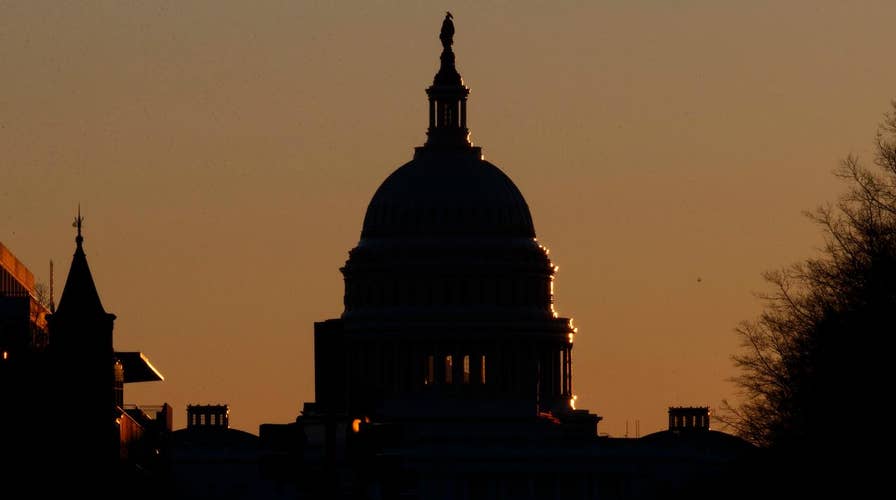House Democrats are reportedly ramping up staff hirings to beef up legal team to investigate the Trump administration
Congressional job postings suggest Democrats are recruiting lawyers with experience in administrative law, oversight work and executive branch investigative counsel; reaction from Rep. Louie Gohmert, Republican member of the House Judiciary Committee.
Just before Christmas, the United States Senate passed the First Step Act -- a bold, bipartisan, and transformative criminal justice reform package that lawmakers had been calling for for decades.
Days later, the Senate passed the Women’s Entrepreneurship and Economic Empowerment Act (WEEE Act), also on a bipartisan basis. The new law ensures that U.S. development aid equalizes gender disparities across the globe.
Together, the WEEE Act and the First Step Act represented two rare examples of Republicans and Democrats coming together to make meaningful change. Both measures were only made possible by Senior Advisers Ivanka Trump and Jared Kushner’s active efforts to court congressional support, and both measures serve as a model for how bipartisan change is achievable in an approaching era of divided government.
At certain moments, both the WEEE Act and the First Step Act appeared doomed to dead end in partisan gridlock and procedural hurdles.
The WEEE Act, for example, hit significant hurdles in the Senate. The common-sense measure ensures that women globally had access to U.S. development aid and microfinancing. The legislation recognized the reality that “achieving global gender parity in economic activity could add as much as $28 trillion to annual global gross domestic product (GDP) by 2025.” At times, however, the passage of the WEEE Act was far from certain.
CLICK HERE TO GET THE FOX NEWS APP
In the face of stagnation, Ivanka Trump made calls, arranged meetings, and hosted roundtables with lawmakers before ultimately facilitating the passage of the WEEE Act in the Senate.
For example, South Carolina Republican Senator Lindsey Graham agreed to co-sponsor the WEEE Act after Ivanka Trump’s outreach. Ivanka was also instrumental in shoring up the support of Utah Republican Senator Mike Lee and convincing him to lift his hold on the bill.
Similarly, on the other side of the aisle, Ivanka had multiple engagements with New Jersey Democratic Senator Bob Menendez, who eventually agreed to a markup of the bill in committee and to lift his hold on the Senate floor.
Taken together, Ivanka’s individual outreach to key lawmakers ultimately ensured the WEEE Act’s passing through Congress and making its way to President Trump’s desk.
The First Step Act – which reduces sentencing disparities, allows for good time credits, and prohibits the shackling of pregnant inmates, among other elements – faced a similar uphill battle. The measure passed the House in May, but it lingered in the Senate for the following 7 months, failing to garner the 60 votes necessary to advance to President Trump’s desk.
It took Kushner actively lobbying for congressional support; Republican Congressman Doug Collins from Georgia and Democratic Congressman Hakeem Jeffries from New York sponsoring legislation in the House; and Van Jones’ civil rights group, Cut 40, lending its support when few others would to finally make a decade-long talking point a legislative reality.
Exploring the laborious but successful pathways of the WEEE Act and the First Step Act elucidate two key points that could prove useful as the 116th divided Congress prepares to convene: Bipartisan legislative successes are made possible by relentless and steady negotiating, and Kushner and Ivanka Trump have proven their ability to adeptly negotiate on both sides of the aisle.
The two recent bipartisan successes also serve as a model for change going forward. Both laws began with co-sponsors from each party; they gained momentum after the emergence of an administrative ally and leader; and they slowly progressed after building incremental support through one-on-one engagements.
This is exactly the kind of success that the American people seek, and it was only made possible by an administration ready to lead and a president willing to sign on to meaningful compromise.
A November Rasmussen poll found that 68 percent of voters said: “it is more important for the new Democratic majority in the House of Representatives to focus on policy areas where it can work with the president and his fellow Republicans.” Just 26 percent of those polled said that impeachment should be the Democrats’ focus.
President Trump, along with Senior Advisers Jared Kushner and Ivanka Trump, have shown their willingness to extend an olive branch to Democrats. The First Step Act, the WEEE Act, and President Trump’s infrastructure and immigration compromise plans all serve as examples of Trump administration outreach to the Democrats.
But the question remains: Are Democrats interested in real, meaningful, bipartisan change?
Time will tell.









































